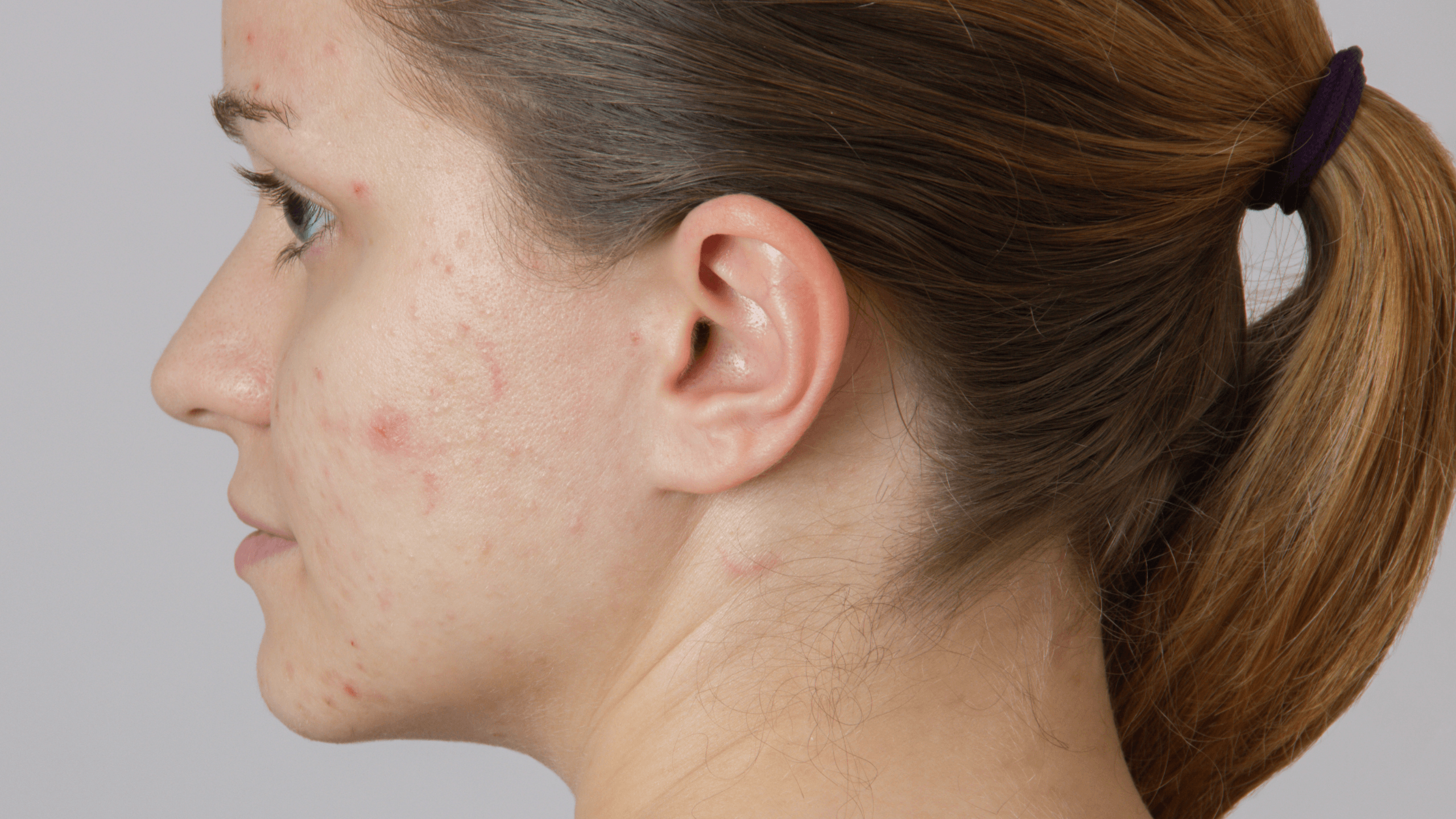You wouldn’t send a soldier to battle with damaged armor, yet everyday, we’re going out into a world of environmental threats with our own weakened shields: our skin.
Our skin barrier protects our bodies from environmental pollutants, sun damage, bacteria, and viruses. But when the skin barrier is damaged, inflammatory skin conditions like acne can arise. While acne can signal a weakened barrier, a weakened barrier can also be a factor in the development of blemishes in the first place.
What Is the Skin Barrier?
Your skin is composed of distinct layers. The outermost layer is the stratum corneum. It’s the only layer of skin visible to the eyes, and it serves as the first line of defense against external threats including bacteria, viruses, and toxins. The stratum corneum also helps keep your skin hydrated. Because it acts as a shield against environmental invaders, the stratum corneum is known as the skin barrier.
How Does the Skin Barrier Become Damaged?
It’s possible to damage your skin barrier in a number of ways. A weakened stratum corneum can be the result of:
- Age: An adequate level of moisture content in the skin is critical to a strong skin barrier. Your skin naturally loses its ability to hold water as you get older, which weakens the stratum corneum.
- Genetics: Skin conditions like eczema and acne, which can have a hereditary component, are associated with a weakened skin barrier.
- Overwashing: Cleansing the skin too frequently or using harsh ingredients can damage the stratum corneum.
-
Over-exfoliating: Exfoliants are effective at removing dead skin cells, but when overused, they can damage your healthy, living skin cells or even create microtears on the skin, both of which harm your skin barrier.
-
UV exposure: Spending too much time in the sun can cause skin damage and weaken the stratum corneum.
How the Health of the Skin Barrier Affects Acne
Blemishes can be a sign of a weakened skin barrier. The bacteria that sit on the skin can enter the pores and worsen blemishes on acne-prone skin. That’s why people with acne may see an improvement in the frequency and severity of their breakouts after repairing the skin barrier.
How to Maintain a Healthy Skin Barrier
You can help care for and repair your stratum corneum in three easy steps:
1. Moisturize
Oily, acne-prone skin can be a sign that your skin isn’t properly hydrated. When your skin lacks oil, your sebaceous glands will go into overdrive in an attempt to bring the proper oil levels back to the surface of the skin. That can result in an excess of oil that leads to acne.
By moisturizing the skin immediately after showering or bathing, you’ll help lock in moisture for happier, more hydrated skin. To avoid irritating your skin or causing more breakouts, opt for a moisturizer that is non-comedogenic and free of fragrances, sulfates, and parabens.
2. Balance Your Skin Microbiome
Your stratum corneum houses your skin microbiome, the ecosystem of trillions of microscopic organisms, including bacteria, viruses, and fungi, that live on the surface of your skin. When your skin microbiome is balanced, good bacteria help ward off foreign invaders. When your skin microbiome becomes unbalanced, it can weaken your skin’s natural protective barrier.
Balancing your skin microbiome can help your skin protect itself. Gladskin's products are a gentle and effective way for people with acne-prone skin to restore bacterial balance and reduce the appearance of blemishes.
3. Adopt a Gentle Skincare Routine
Harsh skincare products, including many of the topical products designed for acne-prone skin, can strip the skin and damage its microbiome, pH, and protective barrier. By using gentle products that work with the skin instead of against it, you can maintain the integrity of the skin.
We recommend this Face Wash and Makeup Remover as part of a microbiome- and barrier-friendly skincare routine.
Understanding the Connection Between the Skin Barrier and Blemishes
Repairing the stratum corneum improves overall skin health and can help mediate some of the factors that lead to acne flares. Caring for your skin barrier by moisturizing, balancing your skin microbiome, and adopting a gentle skincare routine can reduce the appearance of blemishes in acne-prone skin.
